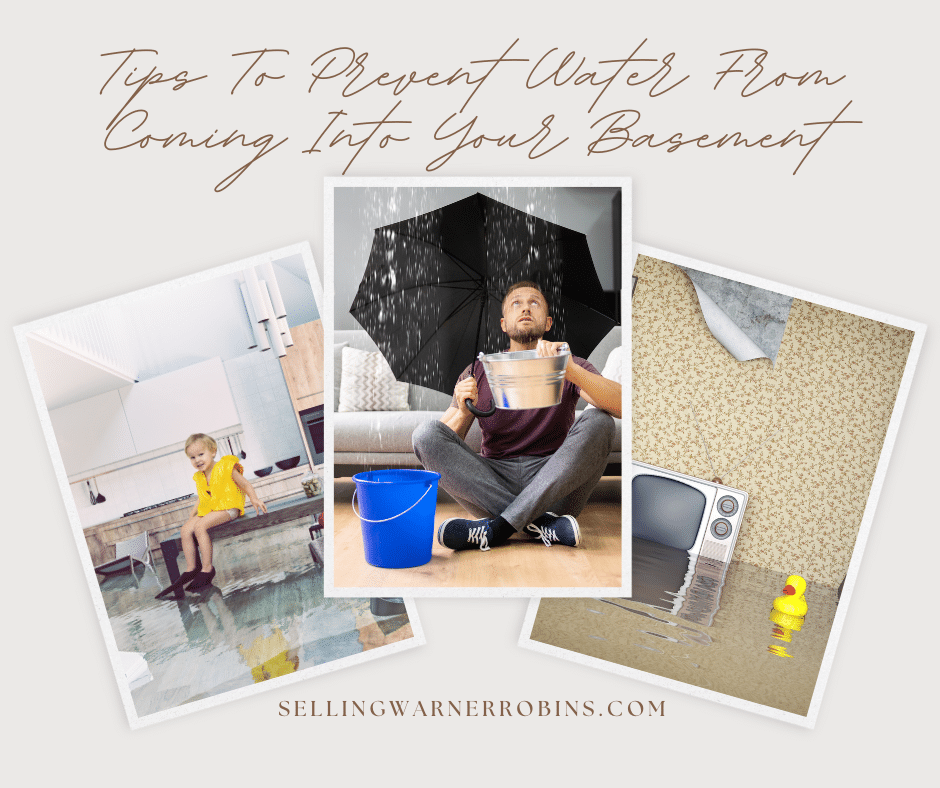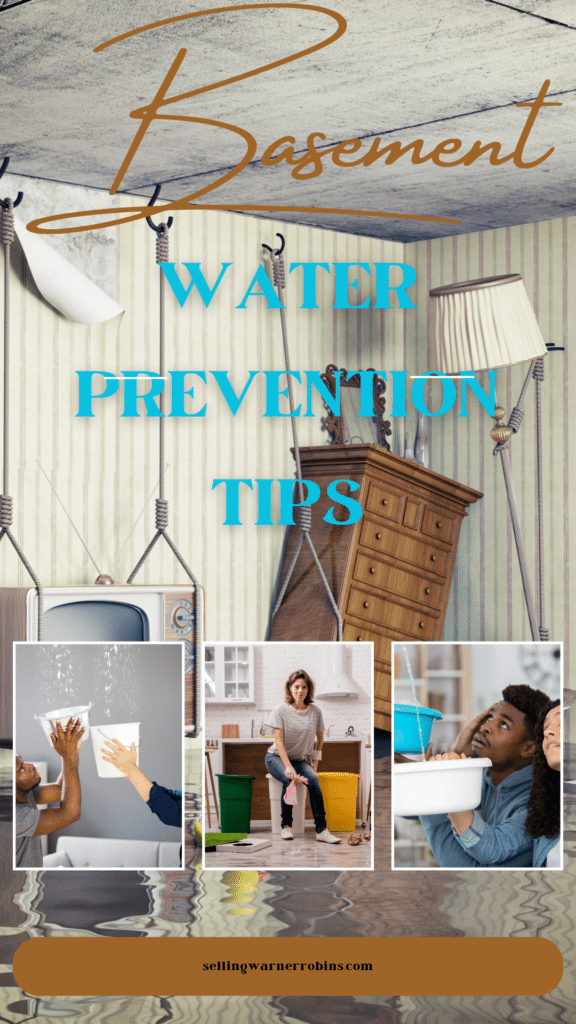How to Prevent Water From Coming Into Your Basement
How can you prevent water from coming into your basement? Water can enter your basement for many reasons, from poor exterior grading to cracks in your foundation. If left unaddressed, this water can damage the walls and floors, lead to mold infestation, cause musty smells, and even contribute to structural rot. Not only can moisture compromise the health and safety of your home, but it can also affect indoor air quality and lead to costly repairs down the road. Eliminating water seepage and addressing its underlying causes is crucial for keeping your basement moisture-free and preserving your home’s foundation.
In this article, we will explore why water enters basements and some helpful ways to prevent water from coming into your basement. From improving exterior drainage systems and sealing foundation cracks to installing sump pumps and waterproof coatings, there are several strategies you can implement to protect your basement. By taking the right preventative measures, you can create a dry, healthy basement environment that adds value and functionality to your home.

What Causes Water in Your Basement?
Excessive moisture outside causes water to seep into your basement most of the time. To prevent damage, homeowners must identify the causes of water buildup and fix them as soon as possible. Foundation repair experts can be very helpful in this regard, as they can assess both internal and external factors that may be contributing to moisture problems.
It’s important to remember that water intrusion isn’t always just a result of external weather conditions. Plumbing issues, poor interior ventilation, and even foundation shifts can play a role in bringing water into your basement. Identifying the root cause is key to implementing the right waterproofing solutions and preventing long-term damage.
Here is how water can enter your basement:
-
Expansive or Clay Soil:
If the soil surrounding your basement walls has a high clay content, it will absorb water and swell. It will exert pressure on the basement walls, allowing water to seep through any openings. The fluctuating moisture levels in clay soil lead to cyclical expansion and contraction, which can worsen these problems.
-
Hydrostatic Pressure:
If the soil surrounding your home starts absorbing too much water due to the lack of an adequate drainage system, the water will exert force against your walls. Increased hydrostatic pressure will allow water to enter through the existing wall and floor cracks, new cracks, or cove joints. This constant pressure can lead to bowing walls and, in severe cases, foundation issues.
What Structural Problems Cause Water Seep Into the Basement?
Water can enter your basement due to several structural problems that compromise the integrity of your foundation and walls. These issues can allow water to seep through cracks, gaps, or other weak spots, leading to moisture buildup and potential long-term damage. Identifying and addressing these structural problems is crucial to preventing water intrusion. Common structural issues include:
-
Cracks in Walls:
Increased hydrostatic pressure can cause new cracks in basement walls and floors and enlarge the existing ones. Regardless of the size of the cracks, water can enter through them. Even small cracks that seem insignificant can let in moisture over time, and if left untreated, they can worsen, allowing more water in and potentially compromising the integrity of the foundation. Whether the cracks are caused by settling, thermal expansion, or foundation movement, it’s crucial to seal them promptly to prevent water intrusion and further damage.
-
Cove Joints:
A cove joint is the space between basement walls and floors. Without a drain system to collect excessive moisture, water will seep through these cove joints. Over time, hydrostatic pressure can force water through these gaps, causing issues like mold, mildew, and even structural damage if not addressed. Installing a proper drain system around the cove joint or applying waterproof coatings can help prevent water from infiltrating this vulnerable area and protect your basement from future moisture problems.
-
Pipe Installation:
When plumbers install pipes in your basement, they have to drill holes larger than the pipes. After installing the pipes, they’ll fill these holes using hydraulic cement. The cement can break down over time, and water can fill the cavities and seep into your basement. This issue is often overlooked, but addressing it early by resealing or using more durable materials can prevent future water damage and protect your basement from moisture infiltration.
10 Tips to Prevent Water Coming into the Basement

Wondering how to prevent water issues in your basement? Water seepage can lead to costly damage, mold, and compromised structural integrity. Thankfully, there are several practical steps you can take to keep your basement dry and moisture-free.
Here are ten effective ways to do so. By following these tips, you can significantly reduce the risk of water entering your basement, protect your home’s foundation, and create a healthier living space. Whether you’re looking to address drainage issues, fix structural concerns, or improve your overall waterproofing strategy, these steps are a great place to start.
-
Use Epoxy Injections to Seal the Cracks:
If your basement walls have cracks, you need to fix them as soon as possible. Even small cracks can become larger entry points for water over time, so addressing them quickly is key to preventing further damage. Using specialized equipment, inject the cracks with high-quality sealants like epoxy or polyurethane. This procedure does not require excavating your basement, making it a relatively low-disruption fix. The sealants usually only require a few hours to cure and will create a durable, waterproof barrier that stops moisture from entering. Epoxy injections are particularly effective for cracks caused by structural shifts or minor settling, as they not only seal the gaps but also help to reinforce the foundation.
-
Cover the Basement Walls with a Vapor Barrier:
A vapor barrier is a thick polyethylene sheet that covers your basement walls, effectively blocking water vapor and moisture from entering your living space. This is a crucial addition for homes that experience high humidity or condensation in their basements. In addition to preventing water from getting into your basement, the vapor barrier also inhibits mold growth, which can be a health hazard, and keeps pests from infesting the space. Furthermore, vapor barriers can improve your home’s energy efficiency by maintaining more consistent temperatures, reducing the energy required to heat or cool your basement.
-
Install or Replace the Sump Pump:
The best way to prevent water from accumulating in the basement is to install a sump pump. These pumps are highly effective at channeling accumulated water away from your home’s foundation, thereby providing reliable protection against basement flooding. If you don’t have a sump pump, it’s a good idea to install one, particularly if you live in a region prone to heavy rainfall or have a high water table. If your sump pump is malfunctioning or outdated, it’s important to replace it. Consider opting for a battery backup pump or a dual-pump system for extra peace of mind, ensuring that your basement stays dry even during power outages or extreme weather.
-
Clean and Extend Your Gutters:
One of the most effective solutions for basement water problems is ensuring that your gutters are functioning properly. Clogged or damaged gutters can direct water right to the foundation of your home, increasing the chances of water seepage into the basement. Extend the downspouts several feet away from the basement to minimize the amount of water that accumulates around the foundation. Regularly cleaning gutters and checking for any blockages from dirt, leaves, or tree twigs is essential to prevent water overflow. This simple maintenance step can drastically reduce the amount of water that pours into the surrounding soil and potentially into your basement.
-
Add a French Drain in Your Yard:
A French drain is a system of perforated pipes surrounded by gravel or rocks. If your basement or foundation is vulnerable to flooding, consider installing one. It will collect extra water around your foundation and drain it away from your home. It’s particularly useful in areas with heavy rainfall or homes with a high water table. French drains are often placed around the perimeter of your home, ensuring that water is diverted well away from the foundation.
-
Avoid Plumbing Leaks:
Plumbing leaks are one of the leading causes of water entering the basement. If you’re also fed up with water seepage resulting from plumbing leaks, call a plumber to fix the problem instantly. Also, check the water supply and drain pipes, especially in cold weather, to prevent them from freezing and bursting, which can result in significant water damage. If you detect any leaks, call a plumber immediately to have them repaired before they escalate into a larger issue.
-
Consider Installing a Drain Tile System:
You can also install a drain tile system inside or outside your basement. Depending on where it is placed, it can collect water building up under the foundation floor or outside your basement walls. It will help overcome cove joint seepage and hydrostatic pressure. While this option can be a bit more expensive to install, it offers an excellent long-term solution for keeping water out of the basement, particularly in high-risk areas.
-
Clean and Cover Window Wells:
Clean the window wells so that they do not become clogged with debris and leaves. Consider installing a window well cover and replacing old leaky windows. These upgrades will be quite effective in preventing water from entering basements. They will also make your basement more energy-efficient and visually appealing. A proper cover will also help prevent rainwater from entering the well, keeping your basement windows dry. Additionally, replacing old or leaky windows with newer, energy-efficient models can further reduce the risk of water infiltration and enhance your basement’s insulation.
-
Ensure the Yard is Graded Away From Your Home:
You might be facing a water seepage problem due to incorrect grading. Your property might be graded towards your basement. Make sure that the slope is directed away from your home. If the problem requires major adjustments, consult foundation repair experts. Proper grading is a simple yet highly effective way to prevent water from accumulating around your foundation, and it can make a huge difference in keeping your basement dry and safe.
-
Check for Moisture After Heavy Rain:
After a heavy rain, your basement is at its most vulnerable. It’s important for you to look around, even if you don’t think there’s a problem. Water can sneak in and cause trouble even if you don’t see it right away. So, after a big downpour, make it a point to check things out. Look for anything that seems off—damp patches on the walls or floor, a musty smell that could mean mold, or even something like paint bubbling up. Don’t forget to check around windows and doors where the walls meet the foundation—those are common entry points for water. If you find any dampness, that’s a red flag. If you are concerned, you can easily get a moisture meter to help you identify the hidden dampness or get support from professionals.
Find a Waterproofing Expert for Your Basement!
A flooded basement can raise major concerns for homeowners, as it can deteriorate a home’s structural integrity and reduce home value. Water entering your basement through cracks in walls, cove joints, and/or plumbing leaks can lead to wood rot, mold infestation, and musty smells.
Waterproofing companies provide efficient waterproofing solutions for your basements that target the root causes of moisture problems. From installing sump pumps and drain tile systems to repairing foundation cracks and improving drainage, experts can assess your unique situation and recommend the most effective methods to protect your basement from water damage.
Hiring a professional not only ensures that the job is done correctly but also gives you peace of mind, knowing that your home is protected against future flooding. With their expertise, they can offer guidance on the best solutions for your budget and home’s needs, saving you time and preventing further complications down the road. Whether you’re dealing with minor seepage or recurring flooding, a waterproofing expert can help restore your basement to its dry, safe, and functional state.
If you found this article on how to prevent water from coming into your basement helpful, please share it so more consumers can benefit from the information provided.
Basement Flooding and Prevention Steps
About Anita Clark Realtor
Anita Clark has written 687 posts on this blog.
Anita is a residential Real Estate Agent in Warner Robins Georgia, with Coldwell Banker Access Realty (478) 953-8595, aiding buyers and sellers with all their real estate questions on her Warner Robins blog.



